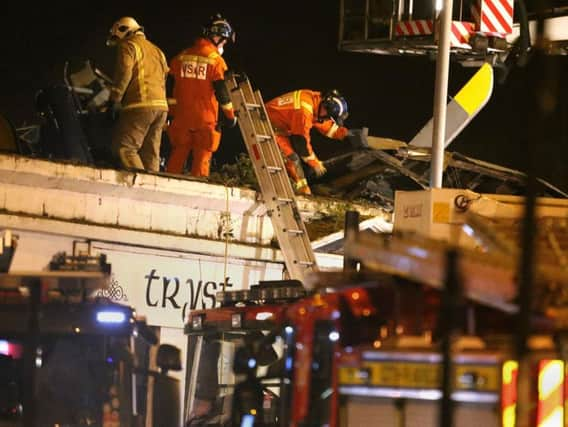Pilot tells Clutha inquiry he has 'never experienced low fuel warning'


George David Young, who arrived for his shift as pilot of the aircraft on the morning of November 29 2013, has given evidence to the fatal accident inquiry (FAI) into the Clutha disaster.
It resumed at a temporary court at Hampden Park on Monday after a six-week break.
Advertisement
Hide AdAdvertisement
Hide AdPilot David Traill along with crew members Tony Collins and Kirsty Nelis died when the aircraft crashed on to the roof of the Clutha Vaults.
Pub customers Mark O'Prey, Gary Arthur, John McGarrigle, Colin Gibson, Robert Jenkins, Samuel McGhee and Joe Cusker were also killed.
Mr Young was asked by Sean Smith QC, on behalf of the Crown, if he had ever experienced a low fuel warning when in flight, to which Mr Young replied: "Never."
Mr Smith then asked about low fuel cautions and again the pilot replied: "Never."
He said he had experienced it in a training simulator in an exercise held after the accident.
Mr Smith asked if such a test had been done in flight but the pilot said it "wouldn't be safe to do so".
He earlier told the FAI he would routinely arrive around 7am for a 7.30am start and be at the base by the River Clyde before the police observers.
The events of the day shift on November 29 2013 were revisited, which began with a flight from Glasgow to Inverness before the helicopter was refuelled to search for a missing person.
Advertisement
Hide AdAdvertisement
Hide AdIt arrived at Inverness with 160kg of fuel and departed on the search in Strathpeffer with 410kg before arriving one hour and 35 minutes later with 160kg again.
The aircraft was then refuelled to 430kg before departing to Glasgow where it was refuelled to 400kg - the recommended take-off level.
It has previously been established at the FAI the aircraft was calculated to burn 200kg of fuel an hour, a burn rate of 3.3kg per minute.
Mr Young said he would make fuel calculations roughly every 20-30 minutes working on a basis of having 100kg minimum in the tank, allowing for 8kg of "unusable fuel".
He added this was because the minimum figure of fuel to land with - established by aircraft operator Bond - had changed to 90kg, having been 85kg at the time of the crash.
The inquiry before Sheriff Principal Craig Turnbull continues.